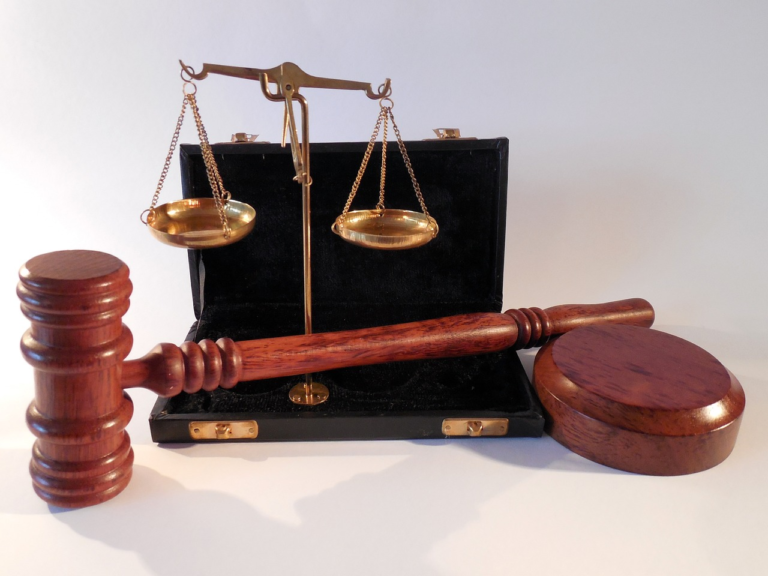To succeed in a personal injury lawsuit, plaintiffs must demonstrate that the defendant was negligent, leading to their injuries. Understanding the elements of negligence—duty, breach, causation, and damages—can significantly influence the outcome of these cases. Successfully proving negligence requires comprehensive evidence and often involves the expertise of legal professionals familiar with personal injury law. Armed with the right knowledge and resources, you can elevate your case’s chances of a favorable resolution.
Understanding the Elements of Negligence
Negligence is fundamentally defined by four key components: duty, breach, causation, and damages. The plaintiff must first prove that the defendant has a duty of care to them. This legal obligation often stems from relationships where one party has a responsibility to act in the best interest of the other, such as drivers to other road users. Upon confirming there was a duty, the next step involves demonstrating a breach of that duty. This occurs when the defendant fails to meet the standard of care established by law or societal norms.
Evidence plays a pivotal role in this phase; thus, gathering documentation, witness testimonies, and any relevant facts is crucial. Subsequently, the plaintiff must link both the breach and the injuries caused to establish causation. Evaluating medical records and expert witness testimony can be pivotal here. Lastly, plaintiffs should quantify their damages, which can include both economic and non-economic losses. Actual financial losses, such as medical expenses and lost wages, are easier to calculate. However, pain and suffering or loss of enjoyment of life may require subjective evaluations but are equally important to claim for a successful lawsuit.
Arm Yourself With Legal Help
Seeking professional legal guidance is paramount when pursuing a personal injury case. Complexities surrounding negligence laws can easily overwhelm someone unfamiliar with them. Therefore, it’s wise to contact an accident attorney, who can clarify terms, procedures, and your rights throughout the process. Legal professionals bring invaluable experience to the table, ensuring all aspects of your case are thoroughly addressed and presented. Among the many roles an attorney fills, they help with gathering necessary evidence and constructing a compelling narrative that aligns with legal expectations. In addition, they often provide insight into the fair valuation of damages, helping to ensure you seek an appropriate compensation amount. Having someone effectively advocate for you increases your chances of a successful outcome significantly.
Gathering Evidence to Support Your Claim
The strength of a personal injury claim lies heavily in the evidence available. Collecting extensive documentation from the onset ensures a strong foundation for the lawsuit. Essential evidence may include police reports, medical records, photographs of the scene, and witness statements. Each type aids in corroborating the plaintiff’s account of events, providing critical support during litigation. Also, preserving evidence can be just as important. For instance, medical records should be carefully documented, detailing not just treatments but also the long-term impact of injuries. Similarly, if the accident was captured on surveillance video, securing that footage promptly can aid in enhancing the validity of the claims made.
Establishing Fault in Different Scenarios
Personal injury cases can vary widely in context, ranging from car accidents to slip and fall incidents. Each case presents unique challenges in establishing fault. In car accidents, for instance, the fault is often determined based on traffic laws and the actions of the involved parties. Analyzing who adhered to traffic signals, speed limits, and right-of-way rules is crucial in establishing negligence. On the other hand, slip and fall cases rely on demonstrating that property owners neglected to maintain safe conditions. This may involve showcasing their awareness of hazardous conditions and failure to rectify or warn others of the risk. Clear documentation indicating the likelihood of such knowledge can significantly bolster a claim.
The Role of Comparative Negligence
It is essential to understand how comparative negligence might affect a personal injury lawsuit. Some jurisdictions apply a comparative negligence rule, which allows for the apportionment of blame between the parties involved. Under such paradigms, if a plaintiff is found partially liable for their injuries, the compensation awarded may be reduced by their percentage of fault. For example, if a plaintiff suffers injuries but is deemed to be twenty percent responsible due to negligence on their part, their compensation would be effectively reduced by that percentage. Knowing how to navigate these complexities is critical, and legal representation can assist in presenting such elements to a jury adequately.
Importance of Timing in Personal Injury Claims
When it comes to personal injury cases, timing is everything. Statutes of limitations dictate the timeframe within which an injured party must file their lawsuit. These laws vary by state and can affect case viability. Often, once the statute of limitations expires, it may prevent further legal actions, making swift action essential. It’s also critical to gather evidence and make claims immediately following an accident. The sooner evidence is gathered, the more credible it remains. Waiting too long may result in lost witness statements or deteriorating physical evidence, thus adversely affecting the case’s strength. Consulting an attorney promptly ensures a timely approach, leveraging all available resources.
Negotiating Your Settlement
Once a personal injury claim has been established, negotiations often become the next step. Insurance companies may approach with initial settlement offers that may not reflect the true value of the claim. Knowing how to advocate for a fair settlement can be challenging without legal guidance. Experts in personal injury law can evaluate any offers based on the evidence collected.
This comprehensive analysis helps assess whether the initial offer meets fairness, allowing the injured party to take steps toward negotiating a more suitable settlement. Taking into account medical expenses, potential future costs, and pain and suffering evaluations is essential during this process. In some cases, negotiation may lead to satisfactory settlements without the need to enter a courtroom. However, if a resolution is not reached, plaintiffs should prepare to proceed to trial, emphasizing the necessity of having a well-documented case and competent legal representation during such proceedings.
Preparing for Trial
If negotiations fail, taking the case to trial becomes necessary. Preparation for court requires a thorough understanding of all elements within the case. This includes a complete review of all evidence and witnesses who will testify. Rehearsing key arguments with legal representation can hone strategies to present the case most effectively. Additionally, ensuring all paperwork and formalities are meticulously filed is crucial to avoid procedural errors that could jeopardize the case. Navigating a trial without legal representation can be challenging, given the myriad regulations governing the courtroom. Legal professionals can adeptly maneuver through complex court procedures ultimately leading to a more favorable outcome.
Being prepared to manage courtroom dynamics, such as jury selection and witness testimonies, is essential for conveying the strength of the case compellingly. Defense strategies may vary, but continued legal support assures confidence through heightened preparedness and informed responses.

Daniel J. Morgan is the founder of Invidiata Magazine, a premier publication showcasing luxury living, arts, and culture. With a passion for excellence, Daniel has established the magazine as a beacon of sophistication and refinement, captivating discerning audiences worldwide.





